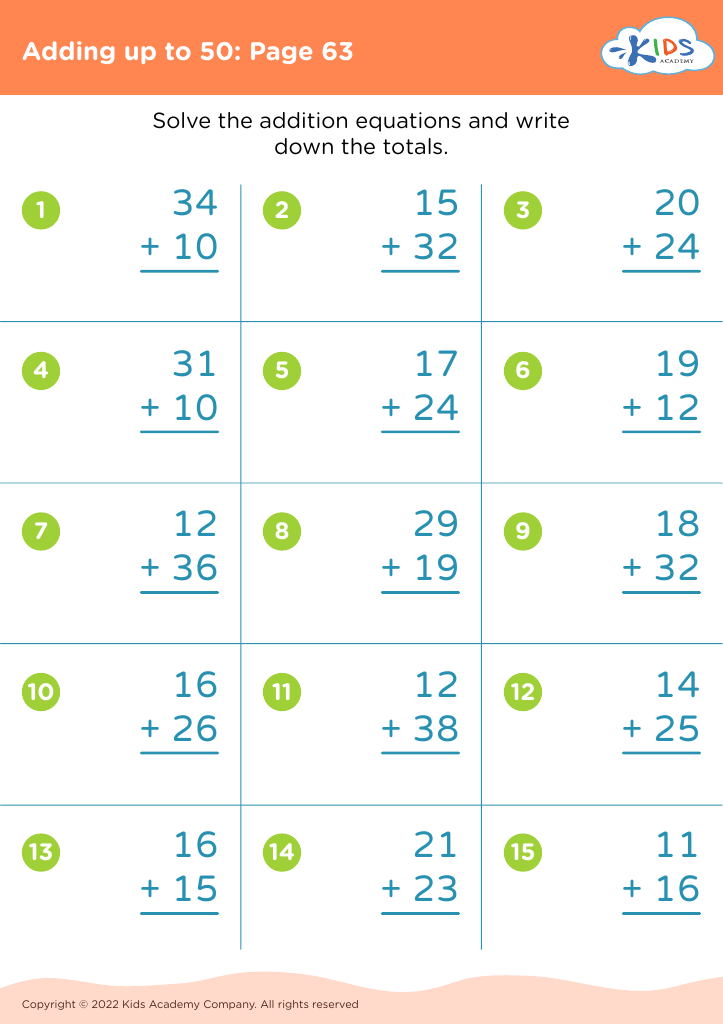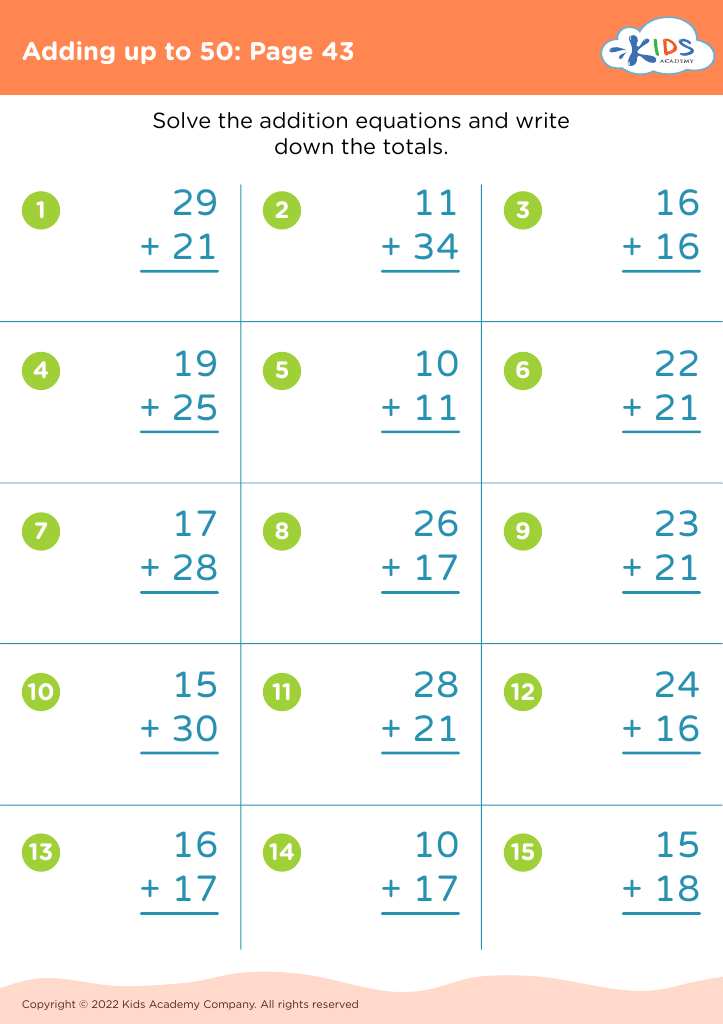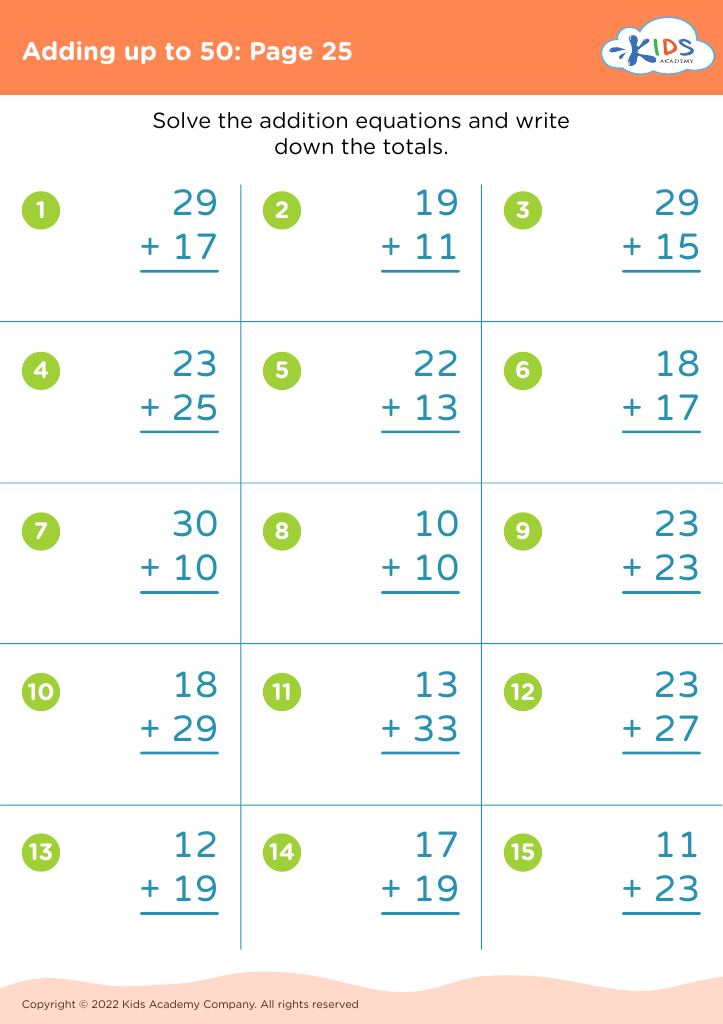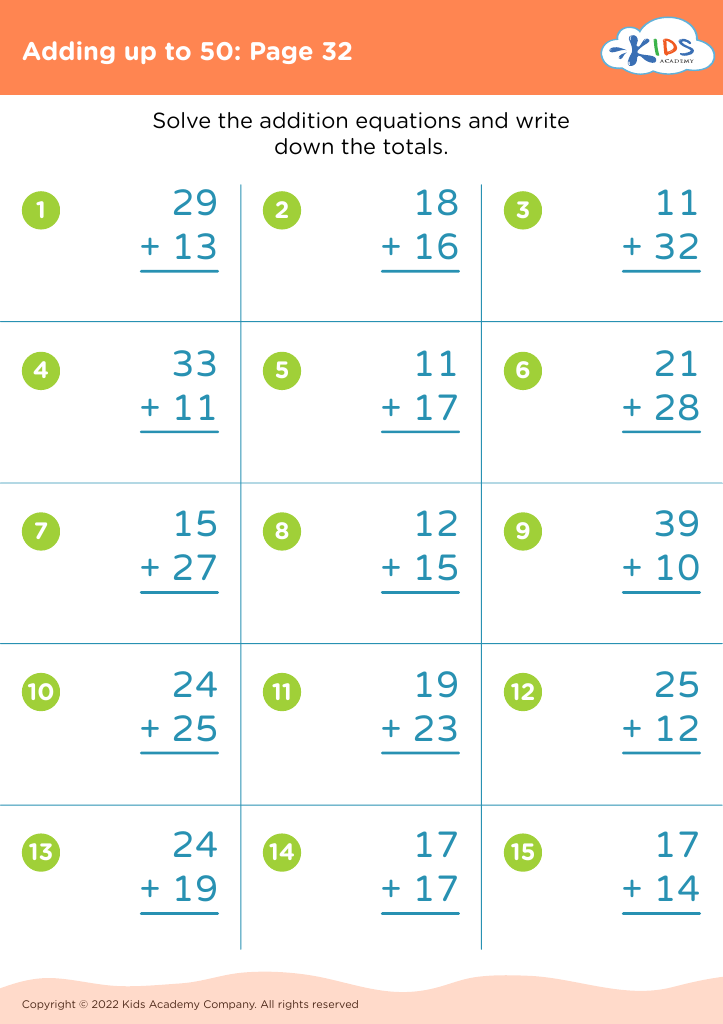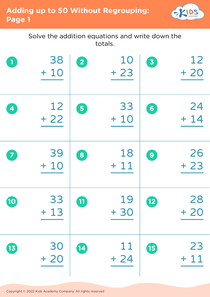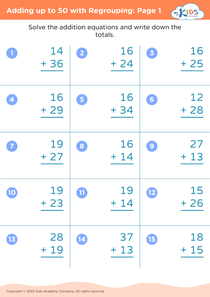Addition Practice Adding up to 50 Misc Worksheets for Ages 5-7
5 filtered results
-
From - To
Welcome to our “Addition Practice: Adding Up to 50 Miscellaneous Worksheets” for children ages 5-7! This engaging collection of worksheets is designed to help young learners master their addition skills while having fun. Each worksheet features a variety of colorful and interactive activities that encourage children to practice adding numbers up to 50. Our diverse exercises promote problem-solving and critical thinking, making math enjoyable for little ones. Ideal for classroom use or at-home learning, these worksheets are perfect for building confidence in early mathematicians. Download now and support your child's journey in mastering addition with exciting hands-on practice!
Addition practice, especially with sums up to 50, is crucial for children aged 5-7 as it lays a strong mathematical foundation. At this age, kids are developing their numeracy skills, and engaging in addition practice helps them build confidence and competence in mathematics. This concept is a building block for more advanced arithmetic, problem-solving, and overall mathematical understanding, which will be used throughout their lives.
For parents and teachers, focusing on addition practice can pinpoint gaps in understanding, allowing for personalized instruction to meet each child's needs. Engaging children with varied exercises, such as games and real-life scenarios, can make learning enjoyable and relevant, fostering a love for math.
Moreover, mastering addition creates a sense of accomplishment that boosts self-esteem. It’s vital for social interactions, as being competent with numbers aids in managing situations involving sharing, buying, or scheduling.
Lastly, consistent practice prepares students for standardized tests and future academic challenges. By incorporating enjoyable and meaningful addition activities, parents and teachers can create a supportive learning environment, ensuring that children are well-equipped for mathematical success in their education journey.
